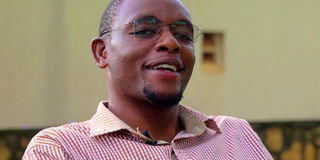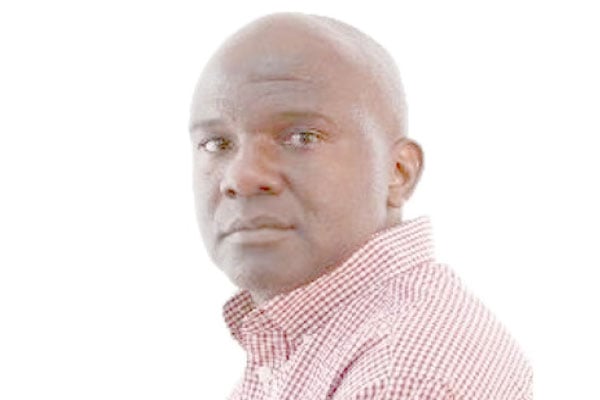We’re barred from investigating Kakwenza’s case- UHRC

Novelist Kakwenza Rukirabashaija.
What you need to know:
- Rukirabashaija was arrested on December 28, 2021 on charges of offensive communication after he allegedly posted a series of belittling, derogatory and abusive tweets about President Museveni and his son, Lt. Gen. Muhoozi Kainerugaba (Commander of Land Forces).
Uganda Human Rights Commission (UHRC) on Thursday said they are barred by the Constitution from investigating cases before court, such as that of detained novelist, Kakwenza Rukirabashaija.
Rukirabashaija, 33, was arrested on December 28, 2021 on charges of offensive communication after he allegedly posted a series of belittling, derogatory and abusive tweets about President Museveni and his son, Lt. Gen. Muhoozi Kainerugaba (Commander of Land Forces).
“Whereas Article 53(4)(a) of the Constitution bars us from investigating matters before Court, we are following the matter of @KakwenzaRukira closely with the relevant authorities. We have received assurances that he will be produced in Court soon,” the commission said in a statement after human rights activists said they would petition it over Rukirabashaija’s continued detention beyond the mandatory 48 hours.
The cited article states that "The commission (UHRC) shall not investigate any matter which is pending before a court or judicial tribunal."
The novelist has, however, not been formally charged in court following his arrest.
Moments after the UHRC’s statement, activist Nana Mwafrika was arrested at the commission’s head office in Naguru, Kampala where she and other human rights defenders had gone to deliver a petition over the continued detention of Rukirabashaija.
Powers of the commission
Article 53 of Uganda's Constitution states that in performance of its function, the commission shall have the powers of a court to issue summons or other orders requiring the attendance of any person before the commission and the production of any document or record relevant to any investigation by the commission; to question any person in respect of any subject matter under investigation before the commission; to require any person to disclose any information within his or her knowledge relevant to any investigation by the commission; and to commit persons for contempt of its orders.
The commission may, if satisfied that there has been an infringement of a human right or freedom, order the release of a detained or restricted person; payment of compensation; or any other legal remedy or redress.
A person or authority dissatisfied with an order made by the commission has a right to appeal to the High Court.
What the commission cannot investigate
However, the constitution further provides that the commission shall not investigate any matter which is pending before a court or judicial tribunal; a matter involving the relations or dealings between the Government and the Government of any foreign State or international organisation; or a matter relating to the exercise of the prerogative of mercy.
On the day of his arrest on December 28, the author wrote on his Facebook page: "Men with guns are breaking my door. They say they're policemen but are not in uniform."
Repeated arrests
The author won acclaim for his 2020 satirical novel, "The Greedy Barbarian", which describes high-level corruption in a fictional country.
He was awarded the 2021 PEN Pinter Prize for an International Writer of Courage, which is presented annually to a writer who has been persecuted for speaking out about their beliefs.
Rukirabashaija has been repeatedly arrested since "The Greedy Barbarian" was published. He has said he was tortured while being interrogated by military intelligence about his work.
At the time, he was accused of breaching Covid-19 social distancing rules, inciting violence and promoting sectarianism.
He described his time in detention as "inhumane and degrading" in his most recent book "Banana Republic: Where Writing is Treasonous."
Reformist
Once hailed as a reformist, Museveni has ruled Uganda since seizing control in 1986, when he helped end years of tyranny under Idi Amin and Milton Obote.
But the former rebel leader has since cracked down on dissent and changed the constitution to allow himself to contest elections again and again.
Uganda has suffered a series of crackdowns meted on those opposed to Museveni's rule, with journalists attacked, lawyers jailed, election monitors prosecuted and opposition leaders violently muzzled.
The United States last month announced sanctions against Uganda's military intelligence chief Major General Abel Kandiho, citing his involvement in serious human rights abuses including beatings, sexual assault and electrocution.
Barely two days after the sanctions, two other members of the Ugandan armed forces were handed lengthy jail terms for their part in violence against protesters in 2020 that left more than 50 people dead.





